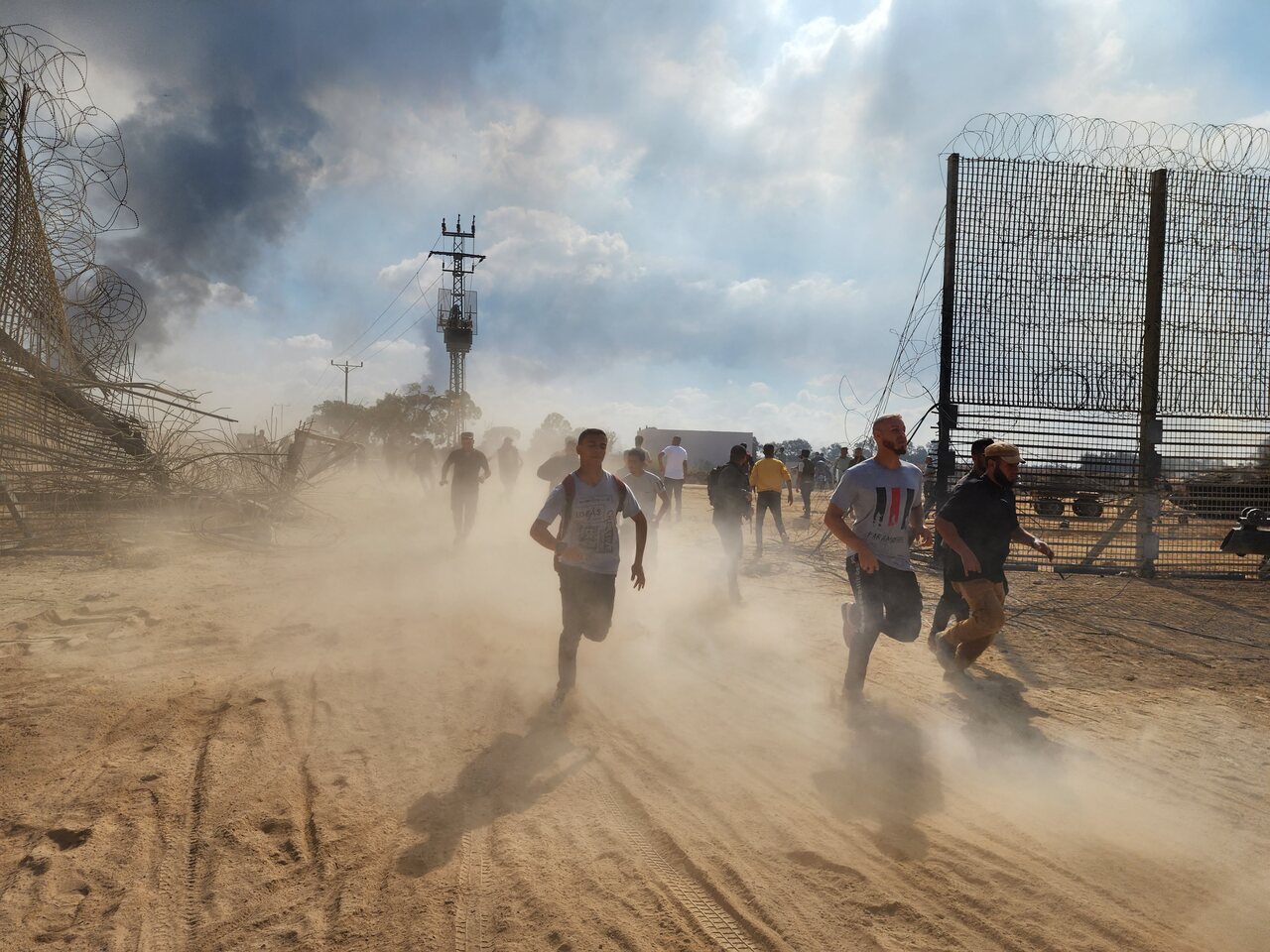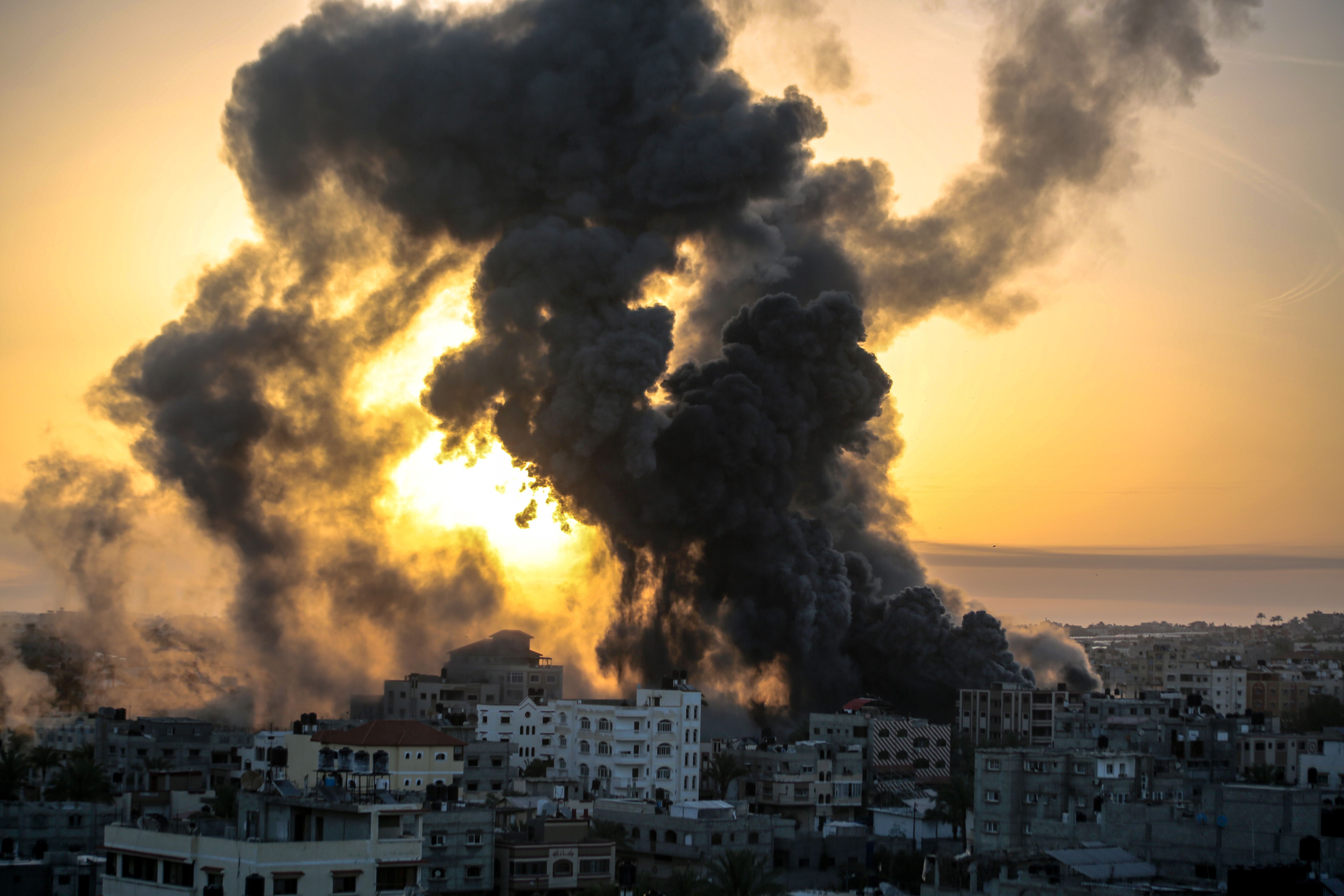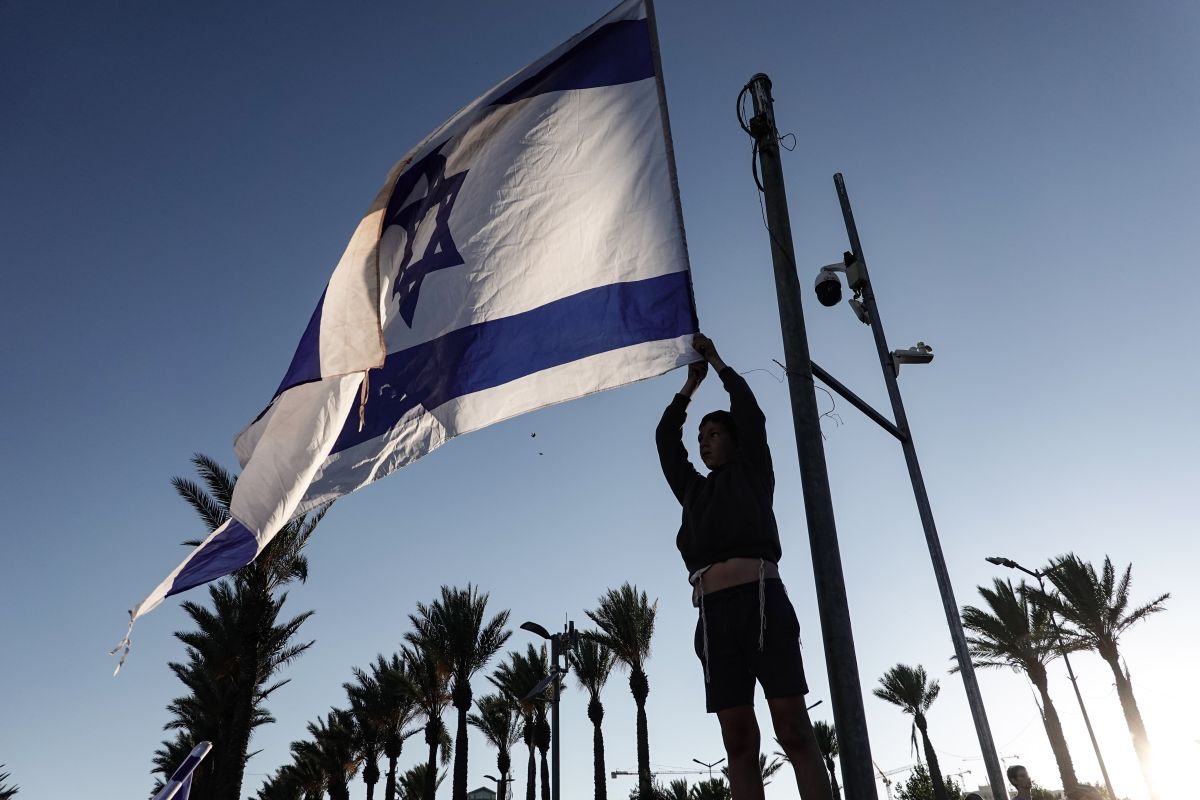Israel and Hamas at War
On 7 October, Hamas launched a large-scale terrorist operation inside Israel. Israeli authorities declared a state of war and its security forces are attempting to re-establish control over areas around the Gaza Strip while preparing for further operations. The escalation opens a new phase in the Israeli-Palestinian conflict.
 AA/ABACA / Abaca Press / Forum
AA/ABACA / Abaca Press / Forum
What is the course of the fighting so far?
In the early morning hours of 7 October, Hamas fighters crossed the Gaza Strip border with Israel and successfully attacked and captured border areas, including Israeli army bases. The operation was accompanied by mass indiscriminate rocket fire on Israel itself. Units of Hamas and other Palestinian armed groups reached up to 20 kilometres deep into Israeli territory. They carried out massacres of civilians, abductions, and the destruction or seizure (on a smaller scale) of military equipment. By 9 October, Israeli troops still had not pushed all Hamas forces back into the Gaza Strip and secured the border. Following the initial attack, Israel declared a state of war, mobilised reservists, and proceeded with massive airstrikes against targets in Gaza. The official tally of Israeli casualties so far (as of 9 October) is at least 800 killed, about 2,500 wounded, and more than 100 taken hostage (including foreigners and Israelis with dual citizenship). Hamas was said to have lost 400 of fighters during the operation; Israeli airstrikes in Gaza alone were reported to have killed at least 500 people and wounded about 3,000 (according to Palestinian sources).
Why has the conflict erupted now, and what are Hamas’ goals?
Unlike previous iterations of the Hamas-Israel conflict, there is no specific event to which the current attack is a reaction. It is primarily an implementation of Hamas’ long-term strategic goals. The 7 October operation is power projection—its scale and complexity (e.g., rocket strikes, use of drones) indicate a long planning process, and the degree of surprise on the Israeli side shows a developed level of Hamas intelligence and counterintelligence competence. The attack has consolidated support for Hamas among the Palestinian population (and in the global diaspora), especially the part that advocates armed struggle against Israel. Thus, it strengthens Hamas’ rivalry with Fatah, which rules the Palestinian Authority (PA), primarily in the context of the PA forces’ waning control over the West Bank. The aim is also to force a reorientation of the existing policies of Muslim states on the Palestinian issue, especially a revision of Israeli-Arab normalisation. The attack also represents open confrontation with Benjamin Netanyahu's government, while the hostage situation could hinder an Israeli ground counteroffensive and lead to the release of imprisoned Palestinians. It was also intended as a spur to broader destabilisation of Israel, but clashes in the West Bank are limited and there has been no inter-ethnic unrest within Israel like there was in 2021. The choice of date for the operation was tactical—it took place at the end of the Jewish holiday cycle and took advantage of the concentration of most Israeli forces in the West Bank—and symbolic, falling on the 50th anniversary of the Yom Kippur War, with the 30th anniversary of the Oslo Accords a few weeks earlier.
What does the war mean for Israel?
The attack by Hamas represents the most substantial state crisis for Israel in several decades. It is one of the most significant failures of the security system and made a fiasco of the idea that the conflict with the Palestinians could be stabilised through only military-economic tools. It is also a powerful image and political blow to Prime Minister Netanyahu, who built his position precisely on slogans of ensuring national security and a strict policy toward the Palestinians. A national unity government with opposition participation is currently under consideration. Still, no agreement has yet been reached on the composition of the cabinet and its goals. The siege of the Gaza Strip by cutting off the supply of water, electricity, and all goods has been announced, which is intended to increase the pressure on Hamas over the hostage issue but will also trigger a humanitarian crisis in the zone. A ground operation in the Gaza Strip is still likely.
The events of 7-8 October will have a profound psychological effect on Israeli society and, in due course, will become the impetus for changes in the military and political authorities. A rise in support for extreme political forces and the depopulation of areas bordering the Gaza Strip cannot be ruled out.
What was the regional and foreign context?
The outbreak of war increases the chances of destabilisation in Israel’s immediate surroundings. The main risk is Hezbollah’s involvement in the conflict, and it has already launched several attacks on the border with Israel. The expected significant scale of Israel’s response in the form of attacks on Gaza and the associated likely high number of civilian casualties will place a political burden on Arab states that have established or planned to establish relations with Israel, most notably Saudi Arabia. New political and diplomatic initiatives by Muslim countries on the Palestinian issue might be presented. The Israeli authorities have formally stated that there was no direct Iranian involvement in the attack, which is a de-escalation signal (although Hamas confirmed Iranian support in the form of weapons and possibly intelligence). The ongoing unravelling of the Israeli-Palestinian situation will involve European and Asian countries to a greater extent than before, with a vital role for the U.S., given, among other things, the scale of the attack and the presence of citizens of those countries among the victims. In the near term, it will also distract world public opinion from the situation in Ukraine (whose authorities have strongly supported Israel).



.png)

